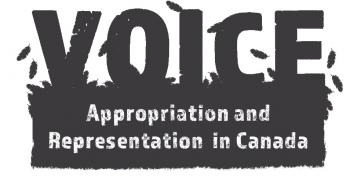Summary
By Andrea Smith
Windspeaker.com Contributor
Cultural appropriation and the public’s misrepresentation of Indigenous people are hot-button topics in North America. And Indigenous people are standing up and demanding better.
After years of activism against Chief Wahoo, the Cleveland Indians baseball teams has decided to slowly remove its offensive logo from player uniforms (but not all of it’s merchandise).
It wasn’t too long ago when there was a hotly-debated discussion about the creation of a cultural appropriation award for writers who used the Indigenous voice (see anything referencing Hal Niedzviecki and the “appropriation prize”). And then there's the debate about author Joseph Boyden and his claim to Indigenous ancestry and right to re-tell Indigenous stories.
From the commodification of Sweetgrass to an Eskimo Chieftain ice sculpture, appropriation and misrepresentation remains commonplace.
The Manitoba First Nations Education Resource Center (MFNERC) now plans to focus on these topics through poetry, articles, essays, and fiction from a variety of Indigenous writers in its upcoming anthology, Voice: Cultural Appropriation and Representation in Canada.
Voice will look at “some of the issues going around right now in Canada, and look at those issues through an Indigenous perspective,” said David Robertson, an author and publishing manager at MFNERC.
Robertson is the writer of a children’s book called When We Were Alone, which won the Governor General’s literacy award this past winter.
“It’s just continuing a dialogue on the issue, and on what some of the outcomes of appropriation are, and how it affects Indigenous people, and how it affects Canada… I think it’s relevant and it’s a good discussion to have,” he said.
Robertson and his team have been working to have some well-known writers commissioned to do a few stories for Voices, but he is also seeking submissions from emerging and non-experienced writers who have something to say.
So far, Richard Van Camp is a confirmed writer, and he’ll be submitting an essay which involves interviews from Elders in his community who have personal experiences with cultural appropriation.
Jen Storm is the co-editor on the anthology, with Robertson. She’s full of ideas for any writers who want to consult with her before they begin their own writing for the anthology.
Sadly, one of her ideas comes from a very bad personal experience, one in which a tragic family incident landed her and her sister in the news.
“My sister… actually passed away from a drug overdose, and ended up being put in the papers. Her biological mom passed away from fentanyl, so they were the first mother and daughter to pass away from the drug,” said Storm.
“It got sensationalized in the media, and with the commentary… I saw how it got misconstrued and people were talking about how addiction was an Indigenous issue and not a Canadian issue,” she said, referring to comments people were writing under the article when they shared it on social media. The comments that were symptomatic of negative stereotypes often perpetuated by the media about Indigenous people. Indigenous people being viewed as addicts was the biggest concern for her.
And, unfortunately, Storm feels her case is not unique. She believes the anthology will show how many examples there really are of appropriation and misrepresentation. She also hopes it can help to rectify the situation.
For many generations it’s been non-Indigenous people shaping Indigenous representation and Indigenous history in Canada, “and Indigenous issues have, for the most part, come from non-Indigenous voices,” she said.
Despite the heaviness of the topic, Storm believes the book can be given a lighter touch. The essay being submitted by Van Camp will be somewhat humorous, she said, and she hopes there are other examples of funny situations.
“There are funny stories, especially in our communities. There’s a lot of laughter going on, and I think those stories can be just as healing,” she said.
For information on the project, go to the MFNERC website at https://mfnerc.org/
Submissions can be sent to mailto:publishing@mfnerc.com

